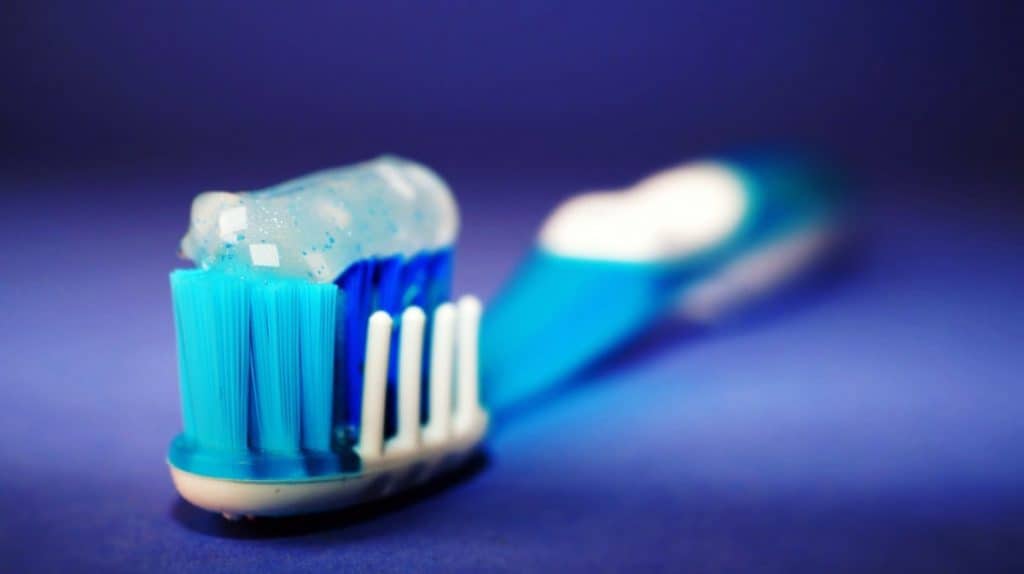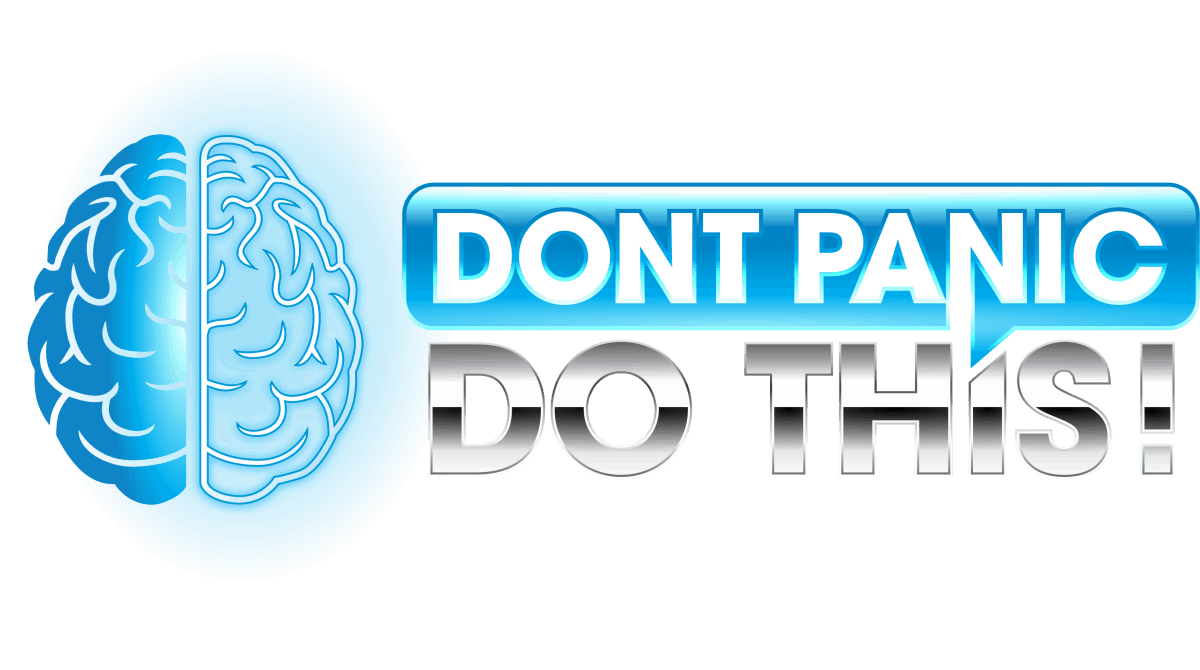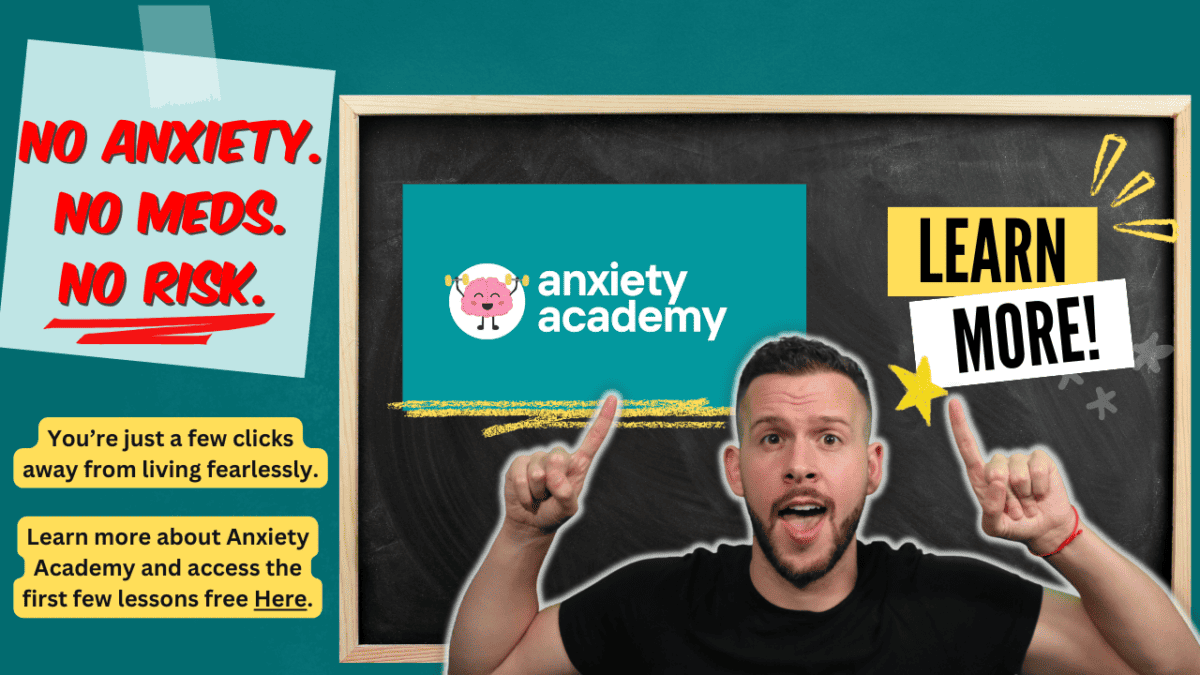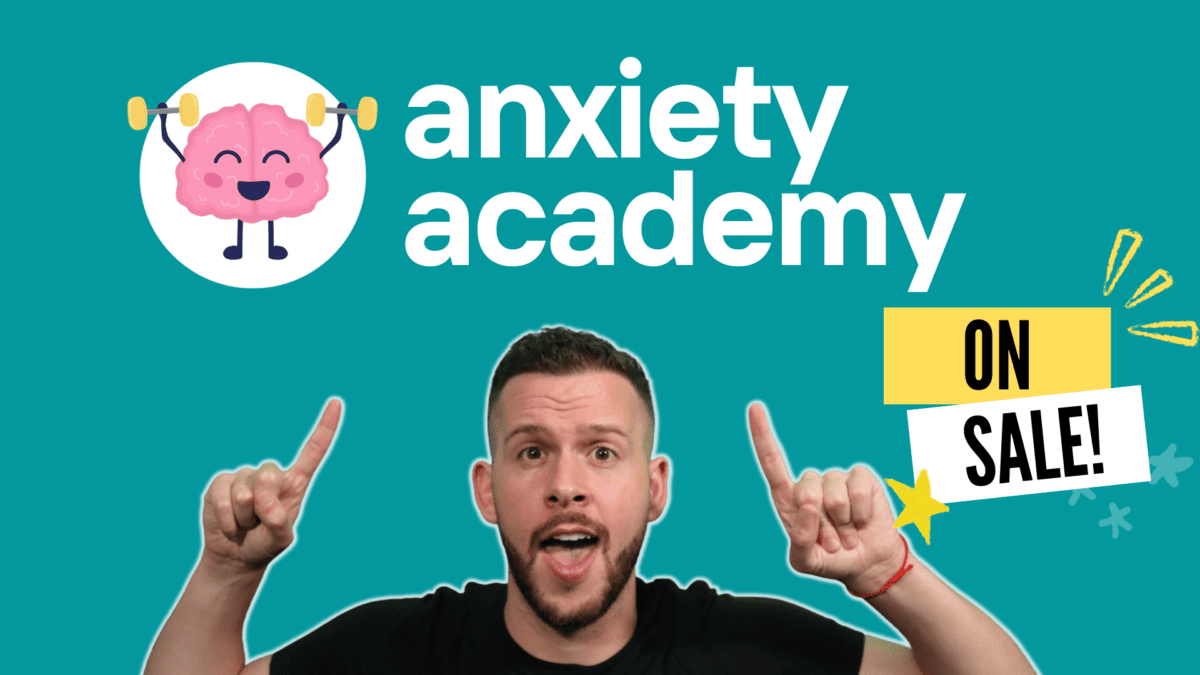Whether 8 years old or 80, people of all ages dread their occasional trip to the dentist’s office. For some people, the thought or feeling of having work done on their teeth can be frightening enough to evoke panic attacks. In the middle of an important procedure, how do you stop a panic attack at the dentist?
- Find the Dentist You’re Most Comfortable with
- Let Your Dentist Know About Your Anxiety
- Utilize an Anxiety Supplement or Oral Sedative
- Choose a “Safe Word” in Case You Need a Break
- Ask to Wear Sunglasses
- Bring Headphones to Listen to Music
- Allow Yourself to Acclimate
- Bring Your Attention to Your Breathing
- Focus on Your Other Senses or a Focus Object
- Visualize Yourself as Being Somewhere Else
- Remember Your Panic Attack Will Pass
These are some of the steps you can take before and during your dentist appointment to prevent or stop a panic attack. With a few of these tricks at your disposal, you have a much better chance of getting through a stress-free dentist appointment.
Let’s take a closer look at dental anxiety, and what we can do to squash it!
Why do I get Anxiety at the Dentist?
Before we dive right into how to stop a panic attack at the dentist, let’s try and understand the nature of your anxiety itself. Why might you be feeling so anxious in the first place?
Well, for starters, it might help to understand what causes us to feel anxiety in general. There are a million reasons why we might feel anxious on any given day or in any given situation; most of them irrational. The unfortunate fact is, our overactive, anxious brains are constantly scanning the environment and detecting threats to our safety where there really are none. We know that no harm is going to come to us, but we freak out anyway. Take some time to read some of our other articles, like this one about the root cause of anxiety, to better understand these feelings.
Okay. So, that might explain why we feel anxiety in general, but why the heck are you feeling anxious at the dentist office?
This is something that’s going to require some introspection on your part.
An estimated 2.7 percent of men and 4.6 percent of women experience dentophobia, the fear of the dentist. But each of these people may experience their fear for entirely different reasons. According to one study “fear of pain” is the most common reason why people tend to avoid seeing the dentist. Yet this is not the only reason why people might fear the dentist. For others, their fear can be rooted more in claustrophobia, agoraphobia, social phobia, or panic disorder itself.
At certain points in my life, dentist appointments stressed me out and it had nothing to do with a fear of pain or of any specific procedure itself; in fact, I care so little about the pain that I actually tend to skip the numbing agents used for simple fillings. On my worst days with panic disorder, my fear was actually of having a panic attack in such an environment where it seemed difficult to leave and get some air if I needed to; frankly, I was just afraid of embarrassing myself.
Everyone is going to have their own reasons for feeling anxious at the dentist. Think hard and consider what your reasons really may be. Is it the fear of pain? A phobia of medical environments and procedures? The cost?
When you’re able to determine what exactly is the source of your dentophobia, it can become much easier for you to manage the symptoms by focusing on the root cause.
Now that we know a bit about why we’re feeling this way, let’s talk about how to stop a panic attack at the dentist.

Find the Dentist You’re Most Comfortable With
Most people have a tendency to pick a dentist and stick to that particular dentist for the majority of their lives. This can be a good thing if you’ve got an awesome dentist, or a bad thing if you’ve got a dentist that you’re just not crazy about. Unfortunately, if you never experiment with different dentists, it’s impossible to know whether or not you’re seeing the best person for the job.
In my childhood hometown, my entire family (siblings, cousins, grandparents, you name it) have gone to the same family dentist for years. This can be great, since you establish a genuine relationship and comfortability over time, which can greatly decrease any dental anxiety you might be having. But before you can get to this point, it’s important to know that you’re actually seeing the best dentist for you.
Having moved around a lot as an adult and hopping from city to city, I’ve gone through a good number of different dentists. I can absolutely assure you that different dentists and different dental offices can vary greatly. Here are just a few of the ways I’ve noticed different dental offices can be different:
- Pricing (low to high costs for the same procedures)
- Aggressiveness (some dentists will want to do fillings/crowns on seemingly every little spot; others are more conservative with treatment)
- Location (it may be easier and less stressful for you if the office is close by)
- Bedside Manner (some dentists will do a much better job of explaining everything to you thoroughly, giving you options, accommodating your needs, etc.)
- The Office Itself (some are cozier than others; perhaps something like a TV helps you relax)
- The Staff (some dentists hire and train much friendlier and more helpful staff than others. A bit of small talk with a friendly and familiar dental hygienist or receptionist always helps me relax)
Try a few different dentists out, and keep these factors in mind. Do not feel as though you are obligated to return to the same dentist time and time again just because you got your X-rays done there. If you are not 100% comfortable with your dentist - find a new one.
My current dentist is awesome. He is more conservative with treatment options and prices fairly, as opposed to a dentist I had in the past who used to try and pull out the drill (and my wallet) any time he suspected I forgot to floss. My current dentist also does an excellent job of talking to me as a human being and explaining things to me in detail; I’ve had dentists in the past brush over details and options as though I wouldn’t understand them, or as though they didn’t have the time to talk to me, which I can’t stand.
Everyone is going to have different things that are important to them when choosing a regular dentist; just like choosing a long-term barber or hairstylist. Experiment a bit and don’t just settle for the first person you see if the fit isn’t perfect. There will be a dentist somewhere in your area that checks all your boxes.
Let Your Dentist Know About Your Anxiety
Once you’ve found the perfect dentist, the next step should be talking to them about your anxiety. I totally understand that this can be uncomfortable and embarrassing, but it’s going to make a big difference in your dental experience. By letting your dentist know about your anxiety of dental phobia, you put them in a much better position to help you through it.
Seriously, don’t be ashamed to let your dentist know about your anxiety. This is what they’re trained for. Many people fall victim to the “fallacy of uniqueness” here, and assume that their anxiety in these situations is rarer than it actually is. I promise you, dentists deal with anxious patients every week if not every single day. If a dentist can manage dealing with a screaming, crying 8-year-old, they can definitely handle a little bit of anxiety from you.
This is helpful information for the dentist because he can pay special attention to your needs, checking in with you regularly to make sure you're comfortable and doing okay. Furthermore, they will probably do a better job of talking you through the whole procedure, so you know what to expect each step of the way; diminishing any fear of the unknown. Finally, they may offer you an oral sedative if they think it could help, which may be an effective short-term solution to dental anxiety for some people.
Utilize an Anxiety Supplement or Oral Sedative
I’m not a doctor, so I’m not even going to attempt to discuss what kinds of options for oral sedatives might be available to you from your dentist. This is something that you will need to discuss with your dentist and, if they deem your anxiety to be significant, they may offer you some form of oral sedative to help you to calm down during your dental procedure.
I’d tell more about my own experience with taking oral sedatives from the dentist if I actually had any, but fortunately I have never felt the need for this. While I typically prefer dealing with my own anxiety without medication whenever possible, dental procedures occur on such an occasional basis that I don’t see much harm or risk when administered in-office by a dentist.
I have, in the past, used some anxiety supplements at home, prior dental exams or procedures. I have personally taken passionflower extract, as well as phenibut (on separate occasions), and found both helpful for calming my nerves prior to and during my time at the dentist. It is unwise and unsafe to combine any supplements with the oral sedatives provided by the dentist, so talk to your dentist beforehand to determine which option, if any, is right for you.

Choose a “Safe Word” in Case You Need a Break
Just in case things get a little too rough, it’s always handy to decide on a “safe word” beforehand.
In the context of a dentist’s office, it may not be easy or convenient for you to actually “say” anything, so a hand sign may be more appropriate. Talk to your dentist about some sort of gesture or hand sign that can be used as your “safe word,” to indicate that you need a break. This is a lot like pushing the panic button in an MRI machine, in that it lets the other person know that you’re having a panic attack and just need to take a minute to catch your breath or recollect your thoughts.
This may seem strange if you’ve never discussed this with a dentist before, but I think that most dentists are actually really good about this. Dentists know how uncomfortable dental procedures can be, even without anxiety, so most of them are really good about communicating with their patients. Most of the good dentists I’ve had will regularly ask, “Are you doing okay?” just to check in and make sure nothing is uncomfortable or hurting me.
Whether you’ve told your dentist about your anxiety or not (ideally you have), work out a hand sign (like the open-palmed “stop sign” gesture) to indicate to them that you need them to stop what they’re doing and give you a moment to yourself. No good dentist will ever have a problem doing this for you; if anyone does, go back to square one and find a better dentist!
Ask to Wear Sunglasses
My current dentist does something that I would have never thought of, but I find it extremely relaxing – They offer me sunglasses to wear throughout any dental cleaning or procedure.
Believe me, I know how weird and irrelevant this sounds, but I swear it actually has a profound effect on helping me to relax and feel more at ease. I assume they provide the sunglasses so that patients are less irritated by the giant glaring light they shine in their faces while they’re working on them – Which is great and all, but I’m actually far more grateful for the effect those sunglasses have on decreasing my anxiety. Something about having the room darkened a few shades just helps my brain to forget I’m in a medical office and enter “relaxation mode.”
Now, I’m not saying it will help everyone, but I do think it’s worth a shot. Even if it’s a 5% reduction in anxiety, that could be the 5% difference that prevents you from having a panic attack at the dentist.
Ask you dentist if they provide sunglasses – you don’t even have to say it’s due to anxiety, you could just tell them that your eyes are sensitive to the light. If they don’t have any in-office, ask if you can wear your own; there’s no reason why they wouldn’t allow it.
Bring Headphones to Listen to Music
Some dental offices actually have televisions in the rooms, which can be a really awesome feature. This can provide a nice distraction for many people, especially for those who are more sensitive to the sounds of drills and other dental equipment at work.
If there are no televisions available for you to watch, ask your dentist if you can bring your own headphones and listen to music during your dental exam or procedure. Music can be an effective focal point during a panic attack – something to focus on other than anxiety. Depending on the music, it could also help to improve your mood or help you to visualize yourself as being elsewhere (more on this later!).
When I had an MRI done on my shoulder, I realized that the claustrophobia one can feel during an MRI and at the dentist are not all that different. During an MRI, it’s fairly common for the patient to be given MRI-safe headphones to help them relax. Music can be equally effective for decreasing anxiety at the dentist.
Allow Yourself to Acclimate
Any time I have ever entered a situation that made me feel a little bit claustrophobic due to panic disorder, I’ve realized an obvious pattern; my peak discomfort and anxiety is usually limited to the first 15 minutes or so.
Oftentimes when we enter an uncomfortable situation, we enter with the assumption that our anxiety or panic attack is going to last us the full duration of our time in said situation. But how often is this really the case? Even if you’ve had panic attacks at the dentist before, how long did they really last? Was it absolutely horrible the whole time you were there? Maybe, but probably not.
When I was a kid, my dad used to keep a saltwater fish tank as a hobby. Every so often he would buy a new fish, which would come in a water-filled plastic baggy. Rather than dumping the fish straight into the water as soon as we got home, he’d set the plastic baggy in the tank for a while, so that the fish could slowly become acclimated to the new environment. Dumping the fish straight into the tank would be too much of a shock on the fish and could kill it. This is exactly how I’ve learned to view anxiety in situations such as the dentist.
Anywhere your anxiety, claustrophobia, etc., might flare up: the dentist, the barber, during an MRI, etc. You should expect an acclimation period. Just like a fish being introduced to a new fish tank, for those of us with anxiety it can take a little while to become acclimated to a new environment. When you first step into the dentist’s office or an exam room, it’s understandable that you may feel a bit anxious at first. Just allow yourself to acclimate without being too hard on yourself. This is normal and, just like with the fish, you should usually start to feel more calm after about 15 minutes or so of acclimating.

Bring Your Attention to Your Breathing
As with any panic attack, one of the most essential things we can do to regain control of dental panic attacks is to make sure we are breathing correctly. Oftentimes during a panic attack, we have a tendency to hyperventilate, or over-breathe, which can heighten our anxiety and worsen the panic cycle. We feel as though we are not getting enough oxygen when, in reality, we are getting too much oxygen. This is why breathing into a paper bag is such an age-old stereotypical remedy for soothing panic attacks; it soothes us by limiting our oxygen intake to a healthier pace.
While you can’t quite breathe into a paper bag during a dental exam, you can get your breathing back under control by pacing your breaths. You can experiment with the right “pace” from the comfort of home; there are many different paces that people report success with online. In my personal experience, I’m not sure the pace matters as much as maintaining a consistent ratio of in-breaths to out-breaths. To keep things simple, try this 4-7-8 breathing technique. This involves breathing in for 4 seconds, holding your breath for 7 seconds, and then breathing out for 8 seconds. If this doesn’t feel quite right to you, you can try a different length of time, or a different ratio; everyone’s different. Most people like to breathe in through their nose and out through their mouth, expanding their belly with each in-breath; but again, this all comes down to personal preference.
To make this method even more effective, keep count of how many cycles you’ve done. Repeat a mantra in your head in which you count each full breath cycle once the cycle is complete. While breathing, you can also benefit from some aspects of meditation by bringing your mind to your breath. Really try and notice how each breath feels. Choose a place in your body – your nostrils, your chest, your belly – where you can feel each breath, and just focus on the sensation of it. Any time your mind starts to wander, reel it back in and return your focus to your breathing.
Focus on Your Other Senses or a Focus Object
If directing your focus to your breathing causes you to feel more anxious at the dentist than relaxed, then you can choose another sensation or focus object to lock in on.
This is probably my personal favorite tip in this list, so definitely give this one a try.
The number one trick I use for how to stop a panic attack at the dentist is to focus on the physical sensations of what is happening. This may sound strange, and it won’t work for everyone (in fact, I could see how this might make some people even more anxious). I actually focus on the physical sensation of everything going on in my mouth as the dentist works. I close my eyes, and let my mind sort of “wander” into my mouth. I mentally explore everything going on with keen curiosity. I paint a sort of mental picture of what each tool is doing to help me throughout the procedure. This keeps my mind occupied without fail, and seems to speed time along for me while my mind is distracted.
Now, admittedly, this works for me because my anxiety does not come from the procedure itself, but rather from panic disorder in general. If the sight of any dental instrument freaks you out, you should find a completely different focal point.
Look around the room and find something that does not inherently stress you out: a friendly poster, a smiling toothbrush plushie, the soft-glow of a distant lightbulb. Choose something like this as your focal point, and keep your mind focused on that object for the time being. Think hard about that one object. Any time you feel your mind start to wander back to the brink of fear, snap your attention back to your focus object. Your focus object does not necessarily have to be something visual, either: it could be a smell, a sound, a feeling, or a taste. Whatever you choose, just keep returning your mind to that subject.

Visualize Yourself as Being Somewhere Else
If you’re finding it difficult to keep your mind on a focus object, visualization can be a useful alternative. Visualization is a straightforward and simple-to-understand tactic for decreasing anxiety and stopping a panic attack at the dentist.
Throughout your dental procedure, you can close your eyes at any time and pretend you are somewhere else. Aside from the tools in your mouth (which should be painless, especially if you’ve been numbed), you’re basically just laying down and relaxing. Technically, it’s not so different from being sprawled out relaxing on the beach.
With enough mental discipline, visualization can work no matter where you are or what you’re doing. You can make the tactic even easier by combining several elements we’ve already discussed in this article… for example, you can wear sunglasses as we discussed in an earlier trick, and you can play tropical island music if you also brought your headphones along. If you pretend hard enough, you may even be able to convince yourself that the horrible industrial-grade toothpaste is a minty mojito you’re sipping on; or that the hook in your mouth is a wild parrot helping to clean your teeth (I don’t know, I’m trying my best).
Remember Your Panic Attack Will Pass
If all else fails, it’s important to remember the cardinal rule of panic attacks: This is going to pass.
Panic attacks at the dentist can be scary and uncomfortable, but they are not dangerous, and they are not going to last forever. Anxiety is a temporary emotional state, and you are in safe hands with a medical professional at your side.
Try and be positive, and be proud of yourself for showing up to your appointment, however uncomfortable, rather than succumbing to avoidant behavior.
You’ve got this, it’s almost over and it’s going to feel so good to finally have this behind you!
How Can I Overcome Dental Anxiety?
My favorite way to tackle any sort of panic disorder or phobia, such as dentophobia, is through exposure therapy. In the context of dental anxiety, this will basically consist of getting yourself to go to the dentist regularly, rather than skipping or avoiding your appointments.
This may not feel ideal right now, but in the long-term, this is the best way to conquer your anxiety. Expose yourself to it regularly, making yourself as comfortable as possible along the way, and over time your fear response to this trigger should diminish.



